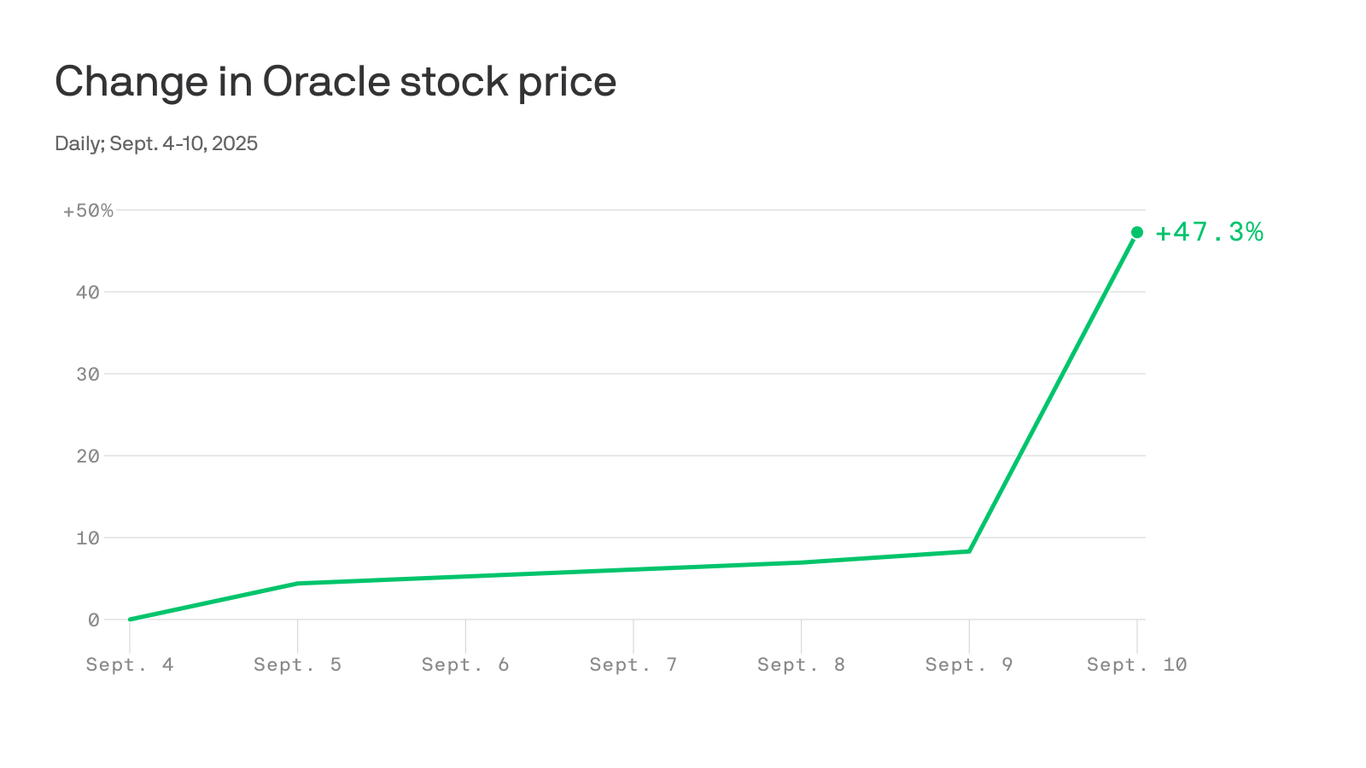Oracle reported about 28 percent cloud revenue growth to roughly 7.2 billion in Q1 FY26 and announced multi year AI contracts that sent its stock up about 40 percent in a single trading session. The results highlight OCI as a growing AI cloud platform while raising questions on contract realization and margins.

Meta Description: Oracle's Q1 2026 results showed 28 percent cloud growth and major AI deals that triggered a historic 40 percent stock surge. Here is what it means for enterprise AI adoption and cloud infrastructure modernization.
Oracle reported one of the most dramatic single session stock moves in its history after releasing Q1 fiscal 2026 results and announcing a string of multi year AI contracts. Shares surged roughly 40 percent in one trading session as investors reacted to stronger than expected cloud momentum and large commitments from major enterprise AI customers.
Long known for its enterprise database offerings, Oracle has been shifting toward cloud infrastructure with a focus on enterprise AI solutions. Oracle Cloud Infrastructure OCI sits at the center of that effort as the company targets mission critical AI workloads and cloud native use cases. By emphasizing autonomous databases, AI workload optimization and enterprise grade cloud security for AI workloads, Oracle is positioning OCI as a trusted AI cloud platform for complex corporate environments.
Oracles breakout shows that specialized providers can capture meaningful share of the enterprise AI market. For enterprises, choosing an AI cloud platform now means evaluating factors such as predictable performance for large models, cloud cost optimization, data governance and integration with existing database systems. Oracle leverages its database heritage to offer integrated solutions that target these needs, including predictive cloud analytics and AI powered automation for operations.
For the broader cloud market, the news suggests room for multiple winners. AWS Microsoft Azure and Google Cloud remain dominant in total cloud spend, but Oracle is carving out a position by promoting OCI for enterprise grade AI deployments. This may encourage more organizations to adopt a multi cloud strategy or to work with a trusted vendor for specific AI workloads.
Analysts note several risks to watch. Contract realization will determine whether headline deals convert into sustained recurring revenue. Infrastructure heavy growth can pressure margins and profitability as providers scale. Execution on service delivery, pricing and ongoing support will be critical to turning AI cloud wins into long term revenue streams.
Industry research projects strong enterprise AI spending growth through 2027, creating opportunities for cloud platforms that can provide scalable infrastructure and secure, compliant environments. Topics driving buyer decisions include edge AI and cloud computing integration, hybrid cloud deployment options, and solutions that combine generative AI with enterprise data and autonomous database capabilities.
Oracles Q1 results and the related surge in stock value reflect Wall Streets belief that OCI can play a major role in enterprise AI adoption. The companys roadmap for AI cloud services and its focus on AI workload optimization position it as an option for enterprises seeking specialized AI cloud platforms. The real test will be sustained execution on contract delivery and margin management as Oracle scales its AI cloud business.
Keywords integrated for SEO: AI cloud platform, enterprise AI solutions, Oracle Cloud Infrastructure OCI, cloud infrastructure modernization, multi cloud strategy, generative AI, predictive cloud analytics, cloud security for enterprise AI, AI workload optimization, autonomous databases, cloud cost optimization.



